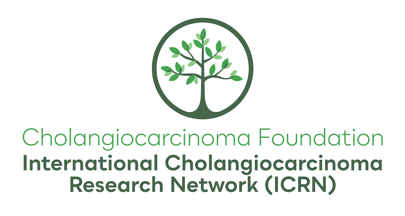Davide Melisi, MD, PhD

Name
Davide Melisi
Organization
University of Verona, Italy
Can you tell us a bit about yourself?
I am Associate Professor of Medical Oncology with a special interest in gastrointestinal tumors, early phase clinical trials, and translational research. I am the director of the Experimental Cancer Medicine Unit and the Laboratory of Digestive Molecular and Clinical Oncology at the University of Verona, Italy.
I have been directly involved in laboratory and clinical research since my internship as MD student and as fellow in Medical Oncology at the University of Naples “Federico II” Medical School under the mentorship of Drs. Giampaolo Tortora and Fortunato Ciardiello.
In 2005, I joined the Department of Gastrointestinal Medical Oncology at the MD Anderson Cancer Center Houston, TX, under the mentorship of Drs. James L. Abbruzzese and Milind Javle and I worked in the lab led by Dr. Paul J. Chiao.
I moved back to Italy in 2009 and was recruited as faculty member at the University of Verona, where I live with my wonderful wife Alessandra, and our three beautiful kids Lorenzo, Miriam, and Stefano. We love cooking all together, skiing in the gorgeous Dolomiti mountains in the winter, and discover the wonders of Sardinia or Sicily aboard our RIB boat in the summer.
Can you share one or two of your specific research interests?
In my lab, we study the cellular and molecular mechanisms responsible for the resistance of biliary tract cancers to standard treatments. Our research led to the development of novel agents which could modulate this tumor resistance, and to the identification of potential predictive biomarkers for patients selection and personalized treatments. In the clinical unit, we develop this concepts by running clinical trials with the most innovative targeted agents and immunotherapeutic drugs in patients affected by cholangiocarcinoma. In collaboration with our team of radiologist led by Dr. Mirko D’Onofrio, we are exploring the application of radiogenomic for the selection of patients with tumors addicted to the druggable product of a mutated oncogene.
Why did you decide to specialize in hepatobiliary cancers?
As a general principle, I always tried to challenge myself in making a difference for the most tough and urgent problems in oncology. Gastrointestinal tumors continue to be a major unsolved health problem and, despite the efforts to improve treatments, the prognosis of patients remains extremely poor. However, among these tumors, cholangiocarcinomas appear to be different. They seem to be a continuous source of new potentially activable molecular alterations, which makes preclinical research and translating these findings into novel treatments for patients even more exciting.
Can you describe one of the unforgettable moments in your patients care or research that has impacted your career?
I definitely remember with great emotion some of the very first times we had the chance to treat patients with cholangiocarcinoma with selective inhibitors of FGFR. Now we know that FGFR-mutant tumors are more frequent in women, in patients who are young, and without other major risk factors. In particular I recall a young woman who referred to our unit, desperate for yet another disease progression after different lines of chemo, whose local test for FGFR mutations was negative for mutations. We did not trust the first result though, and instead analyzed again the tumor sample by using a more sophisticated NGS assay which reported a rare FGFR gene rearrangement. She started a treatment with an FGFR inhibitor, to which she had a major response. More than three years after starting the treatment she is still well. Her first CT scan 2 months after the treatment was for us one of the most rewarding moments of the last years.
Can you tell us one thing collaboration with colleagues could accomplish that you could not accomplish on your own?
Here at U of Verona, I am very fortunate to be a member of the multidisciplinary teams for hepatobiliary, gastric, and pancreatic cancers, working with outstanding oncologists, surgeons, radiologists, hepatologists, and radiotherapists, each of them worldwide-recognized experts in their field.
Thanks to the close collaboration of our Experimental Cancer Medicine Unit, fully dedicated to patients in clinical trials, with the unit of Liver Surgery led by Drs. Guglielmi and Andrea Ruzzenente we are now a major referral center in Italy for patients with hepatobiliary cancers and this allows us to be among the top enrollers worldwide in clinical trials for these diseases.
If you had access to one resource that would move your research forward, what would that resource be?
More funding to invest in human capital. If I could ask something, I would have had more resources to hire as junior faculty all the talented clinical fellows and lab postdocs that trained in my unit and my lab in the last years. In our country there are several opportunities for research grants through government or private charities. However, these funds mainly support consumables and early career fellowships. It would be extremely important to have funds also for professorships that could support the career of junior faculty and give them the opportunity to continue to follow their projects in cancer research.
How did you learn about the Cholangiocarcinoma Foundation?
I was introduced to CCF and ICRN by my friend Dr. Milind Javle.
I was immediately impressed by the flawless organization run by Stacie Lindsey and her staff and by the large number of initiatives that the Foundation supports.
Can you tell us why you became a member of the ICRN?
I believe the collaboration among dedicated researchers from all over the world is the key to achieve truly relevant results in research and this is why I became a member of ICRN early on. ICRN’s ability to bring together the most brilliant scientists from US , Europe, Asia and beyond is priceless.
